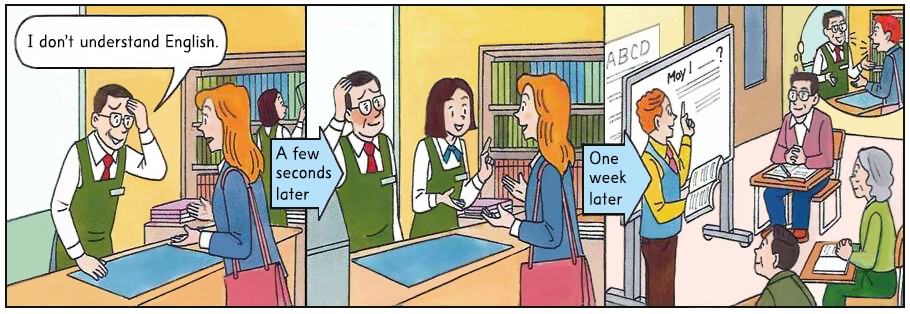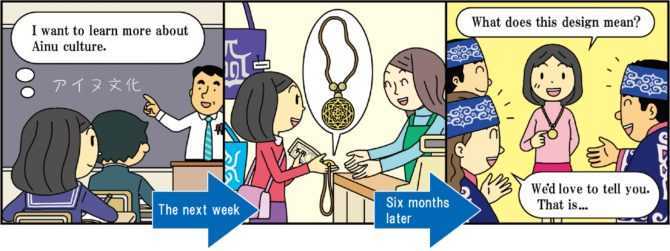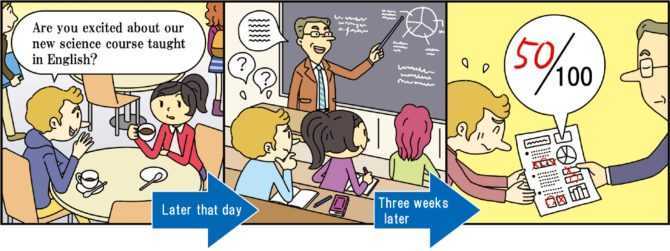The EIKEN Test in Practical English Proficiency Ver. 2.1c
A guide to passing the EIKEN test
Hi. My name is Glen and I am making a guide on how to pass style Eiken tests and want to help learners understand the format of EIKEN style tests so they can improve their proficiency. It is for non-commercial purposes only and it is prohibited from being used in commercial situations. It can not be distributed, or reproduced for financial gain. I hope you find it useful though. Feel free to share the URL with your friends and try and get up to level 1.
First let’s start off with a few of the tests below. Start with level 5 and go as high as you can trying to get at least 7 out of 12 on each test. Our tests are slightly different from the original tests. You can do the tests multiple times as the questions are randomized each time you try. Level 1 is the most difficult but most people only get up to about level pre 1.
Unauthorized use of this material is not allowed. It is only for personal use and can not be used by the EIKEN group, anyone affiliated with EIKEN or its tests, including lawyers, employees and representatives of the company. The format and content used on these tests is different from the original tests.
Complete 12 Questions That Get More Complex As You Go.
Start The Mini Test Here 👇
Levels without a Speaking Test
The Written Test – Multiple Choice Quizzes
EIKEN Tests with a Speaking Test
A sample of the 2nd part of the EIKEN test
The second stage of the EIKEN Test in Practical English Proficiency is a spoken test.
The speaking test:
Eiken Style Questions with Sample Answers
You will need to be able to understand questions like this:
Sample 1: “Please read the passage.”
Practical Skills
These days, practical skills such as speaking foreign languages and using computers are regarded as important. As a result, many schools are offering classes for these skills, and learning them gives students more opportunities to find jobs. However, some teachers say that students are losing interest in traditional subjects like history and math. Practical skills are useful, but studying traditional subjects is also important.
The beginning of each passage is usual the same and the questions asked by each tester are similar but slightly different. After you read the passage out loud the tester will ask you a question related to the test. For example the sample question below.
EIKEN Style Sample Questions
Sample Question 1:
Question: “According to the passage, how does learning practical skills help students?”
The question almost always begins with the phrase “According to the passage…”
Here are some sample answers a student might say during the test.
Sample Answers:
1. “By giving them more opportunities to find jobs.”
2. “By giving students more opportunities to find jobs.”
3. “Learning practical skills helps students by giving them more opportunities to find jobs.”
The third answer is the best as it’s a longer answer.
Answer: Audio Sample – The Student
Answer: Audio Sample – The Teacher
Pronunciation points:
Take care when saying words that begin with TH sounds like them. A common mistake is to make the TH sound sound like long Z. If you do this, the word them will sound like you are saying zem.
Also take care when saying the second last syllable of the word opportunities.
EIKEN Style Tests, Part 2 – Task 2
There will be a series of images next and you will be asked to make a story. The linking words between the pictures are important. Don’t forget to use them. Here is a sample of what the tester might say when they tell you to make the story.
“Please look at the image here and describe the situation. You have 20 seconds to prepare. Your story should begin with the sentence, “One day, Mr. Suzuki was asked something in English by a customer at his bookstore.“
“You may begin now. / Please begin. / You can start now.”

Try to use any text in speech bubbles as well. For example, “He said, I don’t understand English.”
Student’s Answer:
One day, Mr. Suzuki was asked something in English by a customer at his bookstore. He said to the customer, “I don’t understand English.”
A few seconds later, a worker at the store talked to the customer in English for him. Mr. Suzuki felt a little embarrassed that he could not help the customer himself.
One week later, Mr. Suzuki started attending an English language class. He hoped that he would be able to speak with customers in English in the future.
“Now, Mr. / Ms. ___, please turn over the card and put it down.”
EIKEN Style Tests – Question 2
Question:
“Some people say that, because of computers, people spend too much time alone. What do you think about that?”
Sample Answer 1:
“I agree. People don’t have to talk to others while using computers. They should have more face-to-face communication with others.”
Sample Answer 2:
“I don’t think so. Actually, computers make it easier for us to communicate with our friends. We can e-mail them and arrange where to meet.”
EIKEN Style Tests – Question 3
Question:
“Today, many schools in Japan have stopped having classes on Saturdays. Do you think this is good for students?”
“If yes, why? Or if no, why not?”
◎ Sample Answer 1:
“Yes, because students have more time to spend with their friends. They also have time for volunteer work and club activities.”
◎ Sample Answer 2:
“No, because schools should give more lessons to their students. Students need to study hard to pass exams and to get nice jobs.”
○ Sample Answer 3:
“I think both good and bad. So yes it’s good as students have more time to spend with their friends and also do volunteer work or club activities. But no as schools should help students learn more. Students need to study hard to pass exams and to get nice jobs.”
Examples of situation or stories that might come up in the 2nd level test.
1. Your story should begin with this sentence:
One day, Kumiko learned about Ainu culture in her social studies class.
2. Your story should begin with this sentence:
One day, Kenta and his father were talking about going fishing on Saturday that week.
3. Your story should begin with this sentence:
One day, Rentaro and Airi were talking in a cafeteria about their new science course taught in English.
4. Your story should begin with this sentence:
One day, Shota found that his baby boy was sick and had a very high temperature.
5. Your story should begin with this sentence:
One day, Erica had a severe pain in her throat.

6. Your story should begin with this sentence:
One day, Wataru’s parents took him to an international elementary school.
Click here to check the real EIKEN test dates.
I hope this helps and don’t forget to check out the official website for real tests. Most books stores also have official study guides and resources.
Thank you to everyone that has visited and helped improve this page.
If you like the work we do, share our page and show us where you shared it for a chance to get a free pronunciation check.
Also check out our Hokkaido tourism website at https://hokkaido.a4jp.com/top-en/.
Want to study with a teacher online or at our school?
The EIKEN CSE Score

CEFR (Common European Framework of Reference for Languages): An international standard for describing learners’ language skills. It is a 6-level scale that is widely used in Europe.
- ※1: Passing status for Grades 4 & 5 is only determined by the first stage (2-skills, Reading & Listening).
- ※2: Full points for the reading and listening sections only.
- ※3: Full points for the 3-skills test (RLS).
Examples of EIKEN level 1 style questions/topics
Do you agree or disagree?
Focus on expressing agreement or disagreement using structured arguments, linking phrases and examples. Common connectors include “because,” “therefore,” and “however.”
Affirmative action is essential for addressing historical inequalities.
Alcohol has more detrimental effects on society than tobacco.
Animal testing is necessary for scientific and medical advancements.
Animals have the right to live and should not be processed for food.
Artificial Intelligence can replace teachers in the classroom.
Celebrities should never use their social media to make political protests.
Censorship infringes on the freedom of artistic expression.
Coronavirus should now be considered an incurable disease.
Gene-edited babies are ethical.
Homogeneous countries cannot thrive anymore.
It is too late to prevent the loss of a clean environment due to environmental pollution.
Immediate action is required to address the global climate crisis.
Japanese companies would benefit from having more women employees.
Japan’s national debt will cause a national crisis.
Japan’s population decline will cause a national crisis.
Modern society is not influenced by sexism.
Multinational corporations have the most power in a country.
Multinational corporations hold the most power in modern nations.
Municipal employees benefit the least from economic development.
Police in Japan are equipped to meet the challenges of modern society.
Provision of school meals should be banned.
Reporters should be penalized for spreading fake news and misinformation.
Seafood is unsafe for consumption due to marine pollution.
Social media has caused more harm than good to society.
Social welfare programs create dependency and should be limited.
Standardized testing negatively impacts students’ education.
Studying science at university is a waste of time.
The government should provide universal basic income to all citizens.
The media should identify perpetrators of juvenile crime.
Today’s company employees’ values are the same as past generations.
The death penalty deters people from committing crimes.
The death penalty should be banned in Japan.
Translation technology is undermining the role of language schools.
The genre of music that we listen to can affect our intelligence.
The Internet has expanded too far.
Urbanization has brought diversity to Japan.
The tabloid journalism exaggerates the problem of celebrities.
Cause and Effect Questions
Explain causes and results using phrases like “leads to,” “as a result,” and “due to.”
Are the benefits of ecotourism greater than its drawbacks?
Can stricter gun control laws reduce the frequency of mass shootings?
Can individuals make a difference in the modern world?
Does globalization widen the gap between wealthy and poor nations?
Does urbanization enhance diversity in Japan?
Is artificial intelligence more of a threat than a benefit to humanity?
Does the government shape public opinion or reflect it?
Does AI have a responsibility to help unemployment in society?
Is world hunger ever avoidable?
Hypothetical Scenarios
Practice using conditional sentences and imagining possible outcomes.
Could the gap between genders widen in today’s globalized world?
Is it feasible for renewable energy to completely replace fossil fuels?
What would the global economy look like with a single world currency?
What role should virtual currencies play in our world?
Will humanity evolve into a utopia or a dystopia?
Would a 35-hour workweek improve society overall?
Will mailing letters become obsolete in the Internet-driven 21st century?
Will world conflicts cease to exist in the 21st century?
Ethical and Philosophical Questions
Discuss moral dilemmas and philosophical ideas using abstract nouns and rhetorical devices.
Are bioweapons an imminent threat to our society?
Should genetic engineering in humans be deemed morally acceptable?
Is assisted suicide ethical for terminally ill patients?
Is animal testing necessary for scientific advancements?
Can people have strong moral values without law?
Can the right to own firearms be justified?
Would gene-editing babies ever be considered ethical?
Can suicide ever be avoidable? Is the death penalty morally justified?
Can terrorist movements effectively bring about change in society?
Is the death penalty inevitable in human society?
Is the use of drones for targeted killings a violation of human rights?
Policy and Governance Questions
Evaluate government policies using modals like “should,” “must,” and “ought to,” with a formal tone.
Can the efforts of current politicians change our society for the better? *
Should voting be mandatory in democratic nations?
Should the government implement stricter regulations to combat climate change?
What role should the central government play in an international pandemic? *
Should healthcare workers be required to receive mandatory vaccinations?
Can the government effectively address the issue of income inequality?
Should the government make more efforts to protect individual privacy?
Should the government have the authority to access individuals’ private digital data?
Can political activism affect the choices of politicians? *
Should there be limits on the wealth that individuals and corporations can accumulate?
Should the voting age be lowered to 16?
What more can governments do to support social welfare? *
Should there be limits on the size and power of tech giants?
What role should the central government play in an international pandemic?
Should developed nations make greater efforts to spread capitalism?
Should the study of morals be a higher priority among public workers?
Can the government effectively address the issue of income inequality? *
Should there be more centralization of politics?
What role should the central government take during a pandemic? *
Should all nations have the right to have nuclear weapons for self-defense?
Should subordinate workers be asked to evaluate their supervisors?
Technology and Society Questions
Discuss the impact of technology using passive voice and advanced vocabulary.
Is space exploration worth the high financial cost?
Is the use of AI and automation a threat to employment?
Can social media platforms effectively combat the spread of fake news?
Is the Internet beneficial to developing countries?
Has the widespread use of technology platforms diminished the quality of journalism?
Is modern business too dependent on Information Technology?
Is using social media an effective way to bring about change in society?
Environmental Questions
Use descriptive language to discuss environmental issues with comparisons and modal verbs.
Are the current standards of living sustainable in the long term?
Is fossil fuel becoming obsolete?
Is enough being done to protect the world’s natural resources?
Should all nuclear power plants be shut down? *
Is vegetarianism the key to the sustainability of our planet?
Is enough being done to prevent climate change?
Should more be done to reduce the emission of carbon dioxide?
Is enough being done to deal with the problem of global warming?
Should more efforts be made to address illegal wildlife trade? *
Social Issues and Inequality Questions
Explore societal problems using terms like “inequality,” “discrimination,” and “access to resources.”
Are the threats to society posed by low birthrate being taken seriously?
Can hate speech be adequately defined and regulated?
Is capital punishment an effective crime deterrent?
Is affirmative action in college admissions a fair policy?
Do fathers have a role in raising their children?
Is Japan’s justice system being distorted by politicians and corporations?
Should universities focus more on teaching practical skills?
Is the status of women today different from previous generations?
Is enough being done to avoid sexism in society?
Should more be done to combat racial discrimination?
Is wealth inequality in society inevitable?
Is Japan doing enough to support disabilities?
Agree/Disagree Questions
Focus on expressing agreement or disagreement using structured arguments, linking phrases and examples. Common connectors include “because,” “therefore,” and “however.”
- Affirmative action is essential for addressing historical inequalities.
- Censorship infringes on the freedom of artistic expression.
- Immediate action is required to address the global climate crisis.
- Multinational corporations hold the most power in modern nations.
- Social welfare programs create dependency and should be limited.
- Social media has caused more harm than good to society.
- Standardized testing negatively impacts students’ education.
Cause and Effect Questions
Explain causes and results using phrases like “leads to,” “as a result,” and “due to.”
- Are the benefits of ecotourism greater than its drawbacks?
- Can stricter gun control laws reduce the frequency of mass shootings?
- Does globalization widen the gap between wealthy and poor nations?
- Does urbanization enhance diversity in Japan?
- Is artificial intelligence more of a threat than a benefit to humanity?
Hypothetical Scenarios
Practice using conditional sentences and imagining possible outcomes.
- What would the global economy look like with a single world currency?
- Is it feasible for renewable energy to completely replace fossil fuels?
- Will humanity evolve into a utopia or a dystopia?
- Could the gap between genders widen in today’s globalized world?
- Would a 35-hour workweek improve society overall?
Ethical and Philosophical Questions
Discuss moral dilemmas and philosophical ideas using abstract nouns and rhetorical devices.
- Should genetic engineering in humans be deemed morally acceptable?
- Is assisted suicide ethical for terminally ill patients?
- Animals have the right to live and should not be processed for food. (Agree or disagree)
- Is animal testing necessary for scientific advancements?
- Would gene-editing babies ever be considered ethical?
Policy and Governance Questions
Evaluate government policies using modals like “should,” “must,” and “ought to,” with a formal tone.
- Should voting be mandatory in democratic nations?
- Must stricter regulations be implemented to combat climate change?
- Should central governments take on a larger role during pandemics?
- Is financial literacy essential to include in public school curriculums?
- Should all nuclear power plants be decommissioned?
Technology and Society Questions
Discuss the impact of technology using passive voice and advanced vocabulary.
- Are drones for targeted killings a violation of human rights?
- Artificial Intelligence can effectively replace teachers in classrooms. (Agree or disagree)
- Has technology contributed to a decline in journalism quality?
- How effective are social media platforms in combating fake news?
- Is automation a threat to future employment opportunities?
Environmental Questions
Use descriptive language to discuss environmental issues with comparisons and modal verbs.
- Should wealth accumulation be capped to protect global resources?
- Are current measures sufficient to combat climate change?
- What more can be done to address illegal wildlife trade?
- Is there any validity to claims that climate change is a hoax?
- Does the government spend tax money effectively on environmental initiatives?
Social Issues and Inequality Questions
Explore societal problems using terms like “inequality,” “discrimination,” and “access to resources.”
- Is affirmative action in college admissions a fair policy?
- Do the benefits of capitalism outweigh the risks of inequality?
- Should Japan increase its focus on labor unions for workers’ rights?
- Are governments taking adequate measures to reduce income inequality?
- Should universal basic income be adopted globally?





